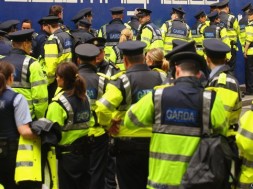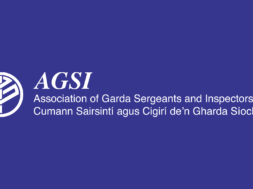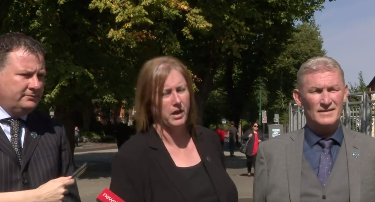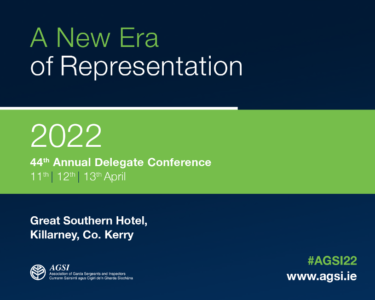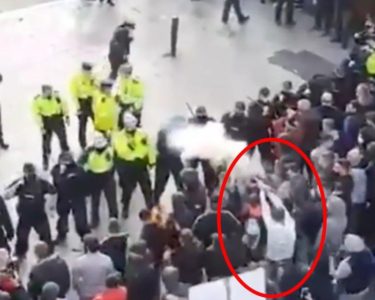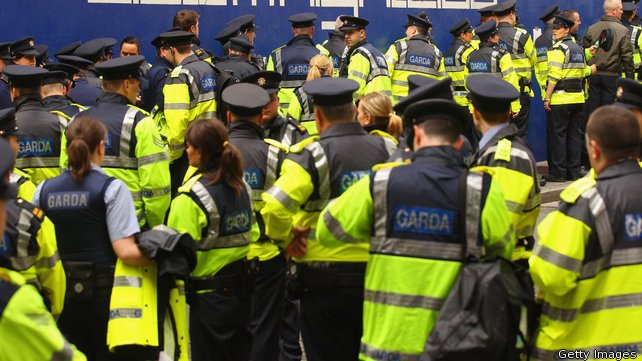
Gardai have never been more militant and though they are barred from industrial action there is a mood in the force to strike and “suffer the consequences”, the head of the Association of Garda Sergeants and Inspectors (AGSI) has warned.
The AGSI will discuss pay at its annual conference on Tuesday but General Secretary John Jacobs says he already detects a deeply pessimistic mood within the force which may drive recruits towards the picket line.
Although gardai are barred from striking, or even talking about striking, by virtue of the Industrial Relations Act and the Garda Siochana Act, Mr Jacobs nevertheless says conditions, morale and compensation are now at such a low point that they could be pushed over the edge.
New figures, obtained by the Sunday Independent, reveal that new gardai earn €13,000 less than police in the London Met and €6,000 less than counterparts in Scotland.
Chronic fatigue is now a major problem as gardai on shift work in the capital’s busy stations are forced to commute long distances from homes where rent is cheaper.
The Garda Representative Association (GRA), says certain gardai are barely able to feed their families.
Mr Jacob of the AGSI said in a statement to the Sunday Independent that despite the organisation’s historic viewpoint to “endure the status quo rather than cause a ripple” he said “members have never been more militant”.
“Although striking is illegal, there is a mood within the Garda organisation to take this action and suffer the consequences. I do not know where things will end up,” he said.
Although Mr Jacob stressed that he wouldn’t be promoting strike action among AGSI members, because he would be exposing himself to criminal conviction by simply mentioning it, he said feelings on the ground was that they are entitled to a restoration of pay.
“We expect people joining to be properly compensated for doing a comparable job to the colleague they sit beside in a patrol car or perform beat duty with or perform a checkpoint with.”
Members’ main issues include: failure to complete a review under Haddington Road Agreement; frustrations that their dangerous jobs are not being properly compensated; and wages not being restored at a faster pace; and dissatisfaction that they must undertake numerous additional responsibilities without any payment.
Garda representatives say new recruits, especially those with families, would be financially better off on the dole and a huge cohort of young police officers have no chance of owning their own home for the foreseeable future.
The pay for a young garda recruits starts at €23,171, reaching €25,472 on completion of one year’s service.
However, new figures show the comparable salary for a trainee PSNI officer is €23,943 – increasing to €28,000 on “attestation”.
And a new constable with the London Metropolitan Police Service receives a basic starting salary of €28,006, plus a €8,261 cost-of-living allowance for working in the capital.
Just across the Irish Sea in Wales, a police officer has a starting wage of €28,051.
Meanwhile, in Scotland, the basic salary for a new recruit is €29,066 – just shy of €6,000 more than a new recruit from the
Garda Training College at Templemore.
It will take an officer in Scotland 10 years to reach a salary of €45,646. A garda will have to work for 19 years to reach the same level of pay.
Ciaran O’Neill, vice-president of the Garda Representative Association (GRA), says garda pay cuts have left many officers with real incomes lower than some of those on social welfare.
“Gardai are the poor relations of neighbouring police forces. New recruits, in particular, can’t afford the high cost of accommodation in urban areas – so they’re going to be commuting longer distances to get to work,” he said, adding that fatigue is a major factor, considering the hours they may have to put in to try and earn a reasonable income. He says many gardai are living off their families and borrowing money just to survive.
The chief executive of the Workplace Relations Commission (WRC) has called for the Lansdowne Road agreement to be “revisited” if teachers, gardai, or nurses, struggle to be recruited because of low entry pay. Mr O’Neill says the agreement was a “bad deal”.
He is seeking the establishment of a pay review board specifically for gardai. The AGSI members will air their concerns at their annual delegate conference this week.
This article was originally published in the Sunday Independent on 10th April 2016
